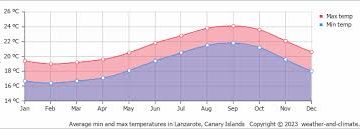Virgin Atlantic: A Journey Through Aviation

Introduction
Virgin Atlantic, a prominent player in the aviation sector, is known for its innovative approach and customer-centric services. Established in 1984 by Sir Richard Branson, the airline has carved a niche for itself within the competitive landscape of international travel. As the aviation industry continues to evolve, Virgin Atlantic remains relevant through its commitment to sustainability, technology integration, and exceptional passenger experiences.
Recent Developments
In recent months, Virgin Atlantic has made headlines for its ambitious recovery strategy as air travel rebounds from the impacts of the COVID-19 pandemic. The airline introduced its ‘Fly Ready’ programme, which simplifies the travel process by providing clear guidance on vaccination and testing requirements at various destinations. This initiative has not only enhanced passenger confidence but has also encouraged more travellers to consider international flight options.
Additionally, Virgin Atlantic reported an increase in passenger numbers following the easing of travel restrictions, posting a 12% rise in bookings compared to the same period last year. The airline’s continued focus on expanding its routes, including newly launched flights to destinations such as the Caribbean and India, has played a significant role in this resurgence.
Sustainability Initiatives
Virgin Atlantic is also actively working towards achieving net-zero carbon emissions by 2050, a commitment that places it at the forefront of sustainable aviation efforts. Recent initiatives include investments in sustainable aviation fuel (SAF) and the incorporation of newer, more fuel-efficient aircraft into its fleet. The airline is the first in the UK to operate a passenger flight solely using SAF, a landmark event that highlights its dedication to reducing its environmental impact.
Future Outlook
Looking ahead, Virgin Atlantic aims to strengthen its position in the transatlantic market while exploring opportunities for expansion in Asia. With the travel sector showing signs of recovery and increasing interest in sustainable travel options, the airline is well-positioned for future growth. Analysts predict that Virgin Atlantic’s focus on customer satisfaction, innovative technologies, and sustainability will enable it to navigate the challenges of the post-pandemic landscape effectively.
Conclusion
In summary, Virgin Atlantic holds a significant place in the aviation industry, combining a rich history with modern practices. Its commitment to sustainability and customer service not only underscores its relevance today but also sets the stage for a promising future. As travel continues to evolve, the airline’s adaptive strategies will likely keep it at the forefront of the industry, making it a compelling choice for passengers around the globe.







